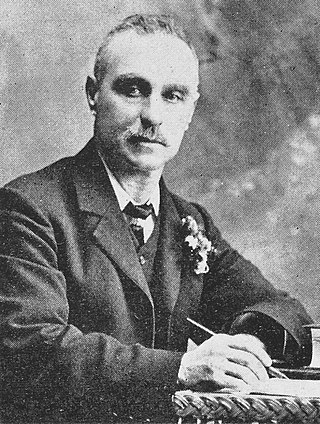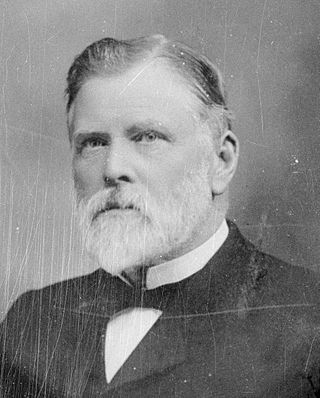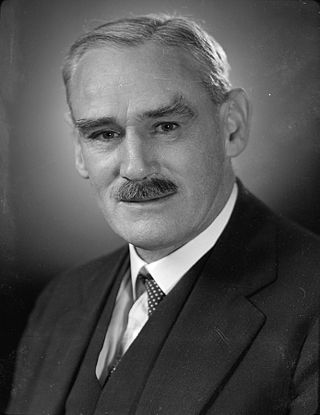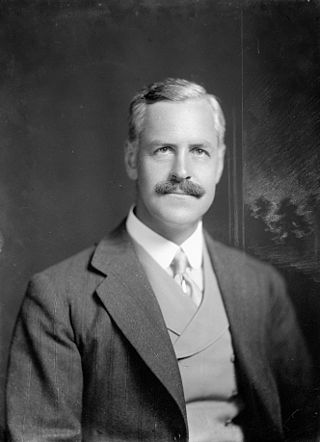Related Research Articles

John Williamson was a New Zealand politician, printer and newspaper proprietor. He was a leading opponent of the 1860s wars against Māori and lost his newspaper and fortune as a result.

The 1935 New Zealand general election was a nationwide vote to determine the shape of the New Zealand Parliament's 25th term. It resulted in the Labour Party's first electoral victory, with Michael Joseph Savage becoming the first Labour Prime Minister after defeating the governing coalition, consisting of the United Party and the Reform Party, in a landslide.

Nelson is a New Zealand parliamentary electorate, returning one Member of Parliament to the House of Representatives of New Zealand. From 1853 to 1860, the electorate was called Town of Nelson. From 1860 to 1881, it was City of Nelson. The electorate is the only one that has continuously existed since the 1st Parliament in 1853.

Thomas Bannatyne Gillies was a 19th-century New Zealand lawyer, judge and politician.

Albert Edward Glover was a New Zealand politician of the Liberal Party.

Mary Manson Dreaver was a New Zealand politician of the Labour Party. She was the third woman to sit in the New Zealand House of Representatives, one of the first two women to sit in the New Zealand Legislative Council, and the only woman to sit in both chambers.

John Duthie was a politician and businessman in New Zealand. Originally from Scotland, he came to Auckland in 1863. He set up his own ironmongery in New Plymouth, then Wanganui, and he finally settled in Wellington. In the latter city, he was mayor for one term. He then represented Wellington in Parliament for a total of eleven years. For the last two years of his life, he was appointed to the New Zealand Legislative Council.

William Earnshaw was a New Zealand Member of Parliament for two Dunedin electorates representing the Liberal Party. He later served on the Legislative Council. He was one of the first labour representatives in Parliament.
Western Maori was one of New Zealand's four original parliamentary Māori electorates established in 1868, along with Northern Maori, Eastern Maori and Southern Maori. In 1996, with the introduction of MMP, the Maori electorates were updated, and Western Maori was replaced with the Te Tai Hauāuru and Te Puku O Te Whenua electorates.
The former New Zealand parliamentary electorate on the western inner city of Auckland, was known as City of Auckland West from 1861 to 1890, and then Auckland West from 1905 to 1946.

William Crowther was a Mayor of Auckland and then Member of Parliament for Auckland, New Zealand.

David Goldie was the Mayor of Auckland City from 1898 to 1901 and a Member of Parliament in New Zealand. The artist C. F. Goldie was his son.

The Bay of Islands by-election of 1929 was a by-election held on 10 April 1929 during the 22nd New Zealand Parliament in the Northland electorate of Bay of Islands. The by-election came about because Harold Rushworth's win in the general election of the previous year was declared void. The seat was won again by Harold Rushworth of the Country Party.
The 1915 Bay of Islands by-election was a by-election held on 8 June 1915 during the 19th New Zealand Parliament in the Northland electorate of Bay of Islands. The by-election came about because Vernon Reed's win in the 1914 general election was declared void by an electoral court. The seat was won by William Stewart of the Reform Party. Reed, who was also of the Reform Party, was barred by the court from standing for election for 12 months.

The 1917 Bay of Islands by-election was a by-election held on 19 March 1917 during the 19th New Zealand Parliament in the Northland electorate of Bay of Islands. The by-election came about because Vernon Reed's win in the 1914 general election had been declared void by an electoral court, and Reed barred from standing for a year. The seat was won by William Stewart, Reed's Reform Party colleague, in the resulting 1915 by-election. When Reed became eligible again, Stewart resigned and Reed won the 1917 by-election unopposed.
The April 1860 Suburbs of Auckland by-election was a New Zealand by-election held in the Suburbs of Auckland electorate following the resignation of Frederick Merriman. He was replaced by Joseph Hargreaves unopposed.
The 1875 City of Auckland West by-elections were two by-elections held in the City of Auckland West electorate in Auckland, following two resignations during the 4th New Zealand Parliament
The 1860 City of Auckland by-election was a by-election held on 5 April in the City of Auckland electorate in Auckland during the 2nd New Zealand Parliament.
The 1879 City of Nelson by-election was a by-election held on 6 February 1879 in the City of Nelson electorate during the 6th New Zealand Parliament.
Ruth Atkinson was a New Zealand activist who was involved in the Temperance movement and women's rights movement. From 1910 until her death was the president of the Women's Christian Temperance Union of New Zealand branch in Nelson. In 1919, she was chosen by the organization to participate in the Inter-Allied Women's Conference, a parallel conference to the 1919 Paris Peace Conference.
References
- ↑ "Auckland". Evening Post. 5 March 1879 – via Papers Past.
- ↑ "Latest Telegrams". Evening Post. 27 February 1879 – via Papers Past.
- ↑ "Auckland News: Election etc". West Coast Times. 5 March 1879 – via Papers Past.
- ↑ "Auckland City West Election". Press. Vol. XXXI, no. 4243. 5 March 1869. Retrieved 7 January 2019.
- ↑ "City West Election". The New Zealand Herald . Vol. XVI, no. 5397. 5 March 1879. Retrieved 7 January 2019.